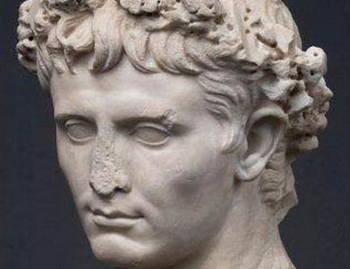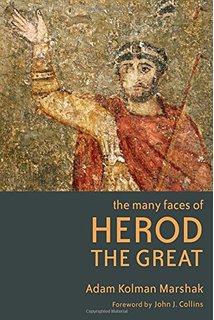For Sunday February 21, 2016
Second Sunday in Lent
Lectionary Readings (Revised Common Lectionary, Year C)
Genesis 15:1–12, 17–18
Psalm 27
Philippians 3:17–4:1
Luke 13:31–35 or Luke 9:28–36
With the Iowa caucus last Monday, and the New Hampshire primary this Tuesday, America's presidential election has begun in full force. Nine months from now, we'll have a new president.
Watching the Iowa returns on CNN last week filled me with deep discouragement — partly because they epitomized our culture of Total Noise, but mainly because of the vulgarity of our civic discourse.
Oddly enough, I was also agitated by three political Scriptures for this week that put our presidential election into a new light.
The primaries made me think of the poem "Politics" by the Nobel Laureate and Irish senator William Butler Yeats (1865–1939). The poem was written in 1938, a year before he died, and on the eve of World War II. The poem contrasts the personal and the political.
How can I, that girl standing there,
My attention fix
On Roman or on Russian
Or on Spanish politics?
Yet here's a travelled man that knows
What he talks about,
And there's a politician
That has both read and thought,
And maybe what they say is true
Of war and war's alarms,
But O that I were young again
And held her in my arms.
Yeats introduces his poem with a quotation from the novelist Thomas Mann: "In our time the destiny of man presents its meanings in political terms." In other words, there's no meaning outside of politics. The person who disengages from politics, who is apolitical, is disparaged as irrelevant or unpatriotic — surely their life lacks meaning!
 |
|
Herod the Great.
|
But that's just what three of the readings do this week. They remind us that however important politics and presidents are, believers see a bigger picture. They form an alternate community.
In Luke's gospel, the Pharisees warn Jesus, "You better get out of here, Herod wants to kill you."
Three years ago, the Israel Museum in Jerusalem premiered the first ever exhibition of Herod "the Great" (c. 73–4 BC), including 250 artifacts from his tomb. Herod was an ambitious builder, and a few recent biographies have tried to rehabilitate his reputation, but most historians remember him as a paranoid and ruthless madman.
Herod executed one of his ten wives, two of his sons, and numerous detractors. In the gospels, when Herod heard rumors about the birth of a rival king, he tried to murder the magi, he ordered the infanticide in Bethlehem, and he beheaded John the Baptist on a dinner party dare.
A simple but important point — there was a deep antagonism between Jesus and the political powers of his day. And thus the sharp response by Jesus, "go tell that fox I will do what I do."
Jesus threatened the political powers, not because he sought to control what they controlled, says Garry Wills, but because "he undercut its pretensions and claims to supremacy." This becomes even more obvious if we fast forward to the end of Lent and the arrest of Jesus. Today we hear this as a religious story, but in its own day it was explicitly political.
Jesus was dragged before Pontius Pilate for three reasons, all political: "We found this fellow subverting the nation, opposing payment of taxes to Caesar, and saying that He Himself is Christ, a King." (Luke 23:1–2).
Pilate met the angry mob outside the praetorium, then grilled Jesus alone back inside. "Are you the king of the Jews?"
"My kingdom is not of this world," Jesus replied. "My kingdom is from another place."
"You are a king, then!" mocked Pilate.
"Yes, you are right in saying that I am a king."
 |
Pilate then had his soldiers beat, flog, and humiliate Jesus with purple robes and a crown of thorns befitting a man whom he miscalculated was a political poser: "Hail, O king of the Jews!"
Back outside, the mob hounded Pilate: "If you let this man go, you are no friend of Caesar. Anyone who claims to be a king opposes Caesar." Pilate thus found himself caught between angering the mob and betraying his emperor.
He caved in: "Here is your king. Shall I crucify your king?"
"We have no king but Caesar!" And with that response we have an ancient version of Mann's observation that there is no meaning outside the political status quo.
In the epistle this week, Paul says that he gave us a "pattern" and "example" to follow, namely, that "our citizenship is in heaven." Once again, today we hear this as a religious phrase, but in Paul's day it was overtly political. The language sounds pious in the worst sense of the word, that believers are "so heavenly-minded they're no earthly good." But for Paul the implications were more political than spiritual.
In his commentary on Acts, the Yale historian Jaroslav Pelikan observed that pagans accused the earliest believers of sedition because of the overt political implications of this confession of a "kingdom of God" and a "citizenship in heaven." By confessing Jesus as Lord, they rejected Caesar as king. Loyalty to Christ the king was absolute and unconditional, whereas fidelity to the Roman state was relative and conditional.
Finally, there is Abraham. Genesis 15 describes how his descendants would live for four hundred years as "strangers in a country not their own." This language of "resident aliens" was echoed by New Testament writers to describe believers. If Jesus said that his kingdom was "not of this world," then his followers were "aliens and strangers" in the world — Ephesians 2:9, Hebrews 11:13, 1 Peter 2:11.
The political theorist Michael Walzer of Princeton makes a simple observation in his book In God's Shadow; Politics in the Hebrew Bible (2012). He argues that while the Hebrew Bible contains a lot about politics, it isn't really interested in politics. Rather, it presents us with a radical anti-politics. Since God is sovereign, Caesar is secondary.
|
|
|
Herod the Great.
|
The prophets, for example, are poets of social justice and the most important form of public speech in Israel, but they're not political activists with any program. With their emphasis on divine intention as opposed to human wisdom, the prophets exemplify the Hebrew Bible's "radical denial of the doctrine of self-help." The prophets "disdain" politics. In contrast to Greek philosophers, "the Biblical writers never attach great value to politics as a way of life." Politics is simply "not recognized by the Biblical writers as a centrally important or humanly fulfilling activity."
In place of a radically relativized politics, says Walzer, the Hebrew Bible commends an ethic or way of life. Micah 6:8 comes to mind: do justice, love kindness, walk humbly with your God. Speak out for those who have no voice. Protect the weak, feed the poor, free the slaves, and welcome the alien. The sovereign God calls each one of us to a larger community that's characterized by "fellow feeling." That is, we trust ourselves to God alone and are responsible for each other.
Garry Wills uses the same language in his book What Jesus Meant. He writes, "the program of Jesus's reign can be seen as a systematic antipolitics." There's no such thing as a "Christian" politics, he says, and efforts by both Democrats and Republicans (or any other party) to co-opt Jesus for their cause distort the gospels.
The Jesus of the gospels, says Wills, proposes no political program, but instead something far more strenuous, something "scary, dark and demanding." No state or political party can indulge in the self-sacrifice that Jesus demands when he calls us to lovingly serve the least and the lost. But self-sacrificing love for my neighbor is precisely the message of the Lenten season.
Image credits: (1) The Embassy of Israel to the United States; (2) Amazon.com; and (3) Shark Enterprises.





